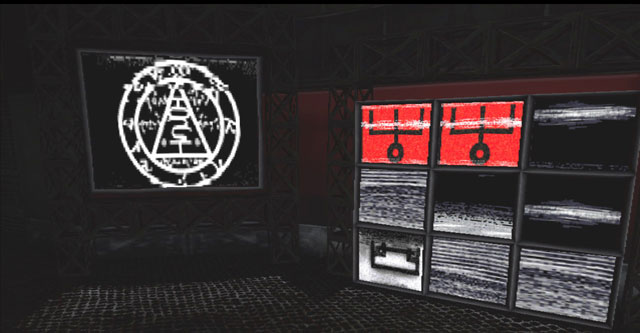
Since its release in ’99, Silent Hill inspired people to form communities around the series, to talk and wonder about the secrets of that mysterious foggy city. In 2001 i got into internet for the first time and, quite obviously, started searching information on the game i loved. Thus i too became a part of one such community. It was called Black Helix, and we spent hours sitting in the forum and discussing everything Silent Hill related. We argued about reality, we dreamed of what it would be to personally go to Silent Hill. Silent Hill 2 was already released, and still talked about a year after the release. After getting a PC version (I didn’t have a PS2) i joined in the heated discussions about the story and the characters. My opinion, just as the opinion of any other member of the community, was “true” in a way, because Silent Hill 2 didn’t have any straight answers. I believed that maybe the guilt of leaving the wife to die alone transformed into an imagined murder, and i still do. And i could – there was no trustworthy narrator, there were no clear facts, no definitive “truth” in the game. So, Silent Hill 2 journey was a personal one. Looking back – that was the best time to be a Silent Hill fan.
Everything changed when in the Silent Hill 3 trailers you could see pictures of Alessa, clear references to the first game. I still remember how one of the community members said during the discussion of the trailer: “Who cares what music plays in the trailer? Alessa was there – that’s what’s important!” Everyone started to expect an explanation to everything in the series. It was a happy thought at first: new info, new stuff to think about, new theories and topics for discussion. In fact, the only worries i clearly had back than were the moments of trailer with Heather mowing down enemies with a sub-machine gun. When i finally played the game, and actually liked it, my main criticism was still that of the amount of action. But as time passed, i suddenly released that i wasn’t really looking forward to new Silent Hill games. I wanted more after the first game, i wanted more after the second one. But now, i just didn’t. Only later did i realize why – there was nothing more to find in Silent Hill. It was stripped of its mystery.
Before Silent Hill 3, the city itself could’ve been anywhere. Somewhere on Earth. Somewhere inside any person. It could’ve been a real place, it could’ve been a Limbo or Hell-like place. It could’ve been ever changing, or being exactly like we saw it in the games. It could’ve been a normal city, changed by the fog. It could’ve been just a figment of an imagination, waiting to become real round every corner. And suddenly, that mystery, that uncertainty about it was destroyed. The city was given a place, a purpose, a reason. The details were still fuzzy, but the limits to what it can and cannot be were set in fat glowing lines. Everything actually happened, because of some cult in a usually normal city of US.
The Room tried to change that a bit, but was still tied by the set rules. You already knew what could happen there and what couldn’t. The “cult” story was still “true”, the characters existed in the same way, they were mentioned in earlier games. It was still a game that “actually happened”. Silent Hill: 0rigins worsened the situation by pulling George Lucas, and tying the series even closer to the “Alessa arc”. The Movie, while starting rather true to the game, devolved into a gore fest with a barbed wire rape and the obligatory Pyramid Head appearance. And do i even need to talk about Silent Hill: Homecoming?
But then, 0rigins developers had an idea. A perfect idea, the one Silent Hill 2 team probably had. They decided to make Shattered Memories different. Simply different. It felt a lot like a “usual” Silent Hill game, but wasn’t the same. Like Silent Hill 2 was. It didn’t follow any rules from previous games (except for the normal-otherworld transitions structure), it didn’t follow the same overall storyline and “mythology”. And, much more importantly, it questioned reality and made the players journey personal. In it’s own way. And even while it did have answers in the ending, they weren’t the “now you know everything, move along” answers. They left you with questions, ideas, topics to discuss with other people. And your opinion, your personal journey through the game, mattered.
For Silent Hill magic to work, it has to be left unrestricted. It has to be left without “mythologies” or “rules”. It works when your imagination is a part of it. It works if we can think “Silent Hill can happen anytime, anywhere and with anyone.” It’s not a haunted mansion in the amusement park. It just is.